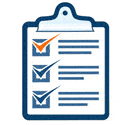In most respects, your expectations of eLearning should be similar to those of a traditional classroom. You should expect quality education delivered by qualified, concerned instructors but you should also expect to assume responsibility for your own learning. Here are some tools to help you.
Study Skills
Student Learning Assistance Center Alkek Library 4th Floor 601 University Dr ALK 411 San Marcos, TX 78666 512 245-2515 phone 512 245-3002 fax Site Map. Clarity English: Complete listening exercises aimed at your level (click Study Skills Success, then click ‘Just Practice’) Slow English: Intermediate listening. Poor essay writing skills; Not using stress management techniques in exams; The Best Time to Learn Study and Exam Skills is NOW. We provide expert one-to-one study and exam training at our office in Adelaide, or in your home using the internet. Contact us now on (08) 8370 0110 to. When you hit the books - and they hit back! Offering a wide variety of helpful study skills resources for students of any grade level, organized by the process of studying and by subject.
The following are general study skills guides, tutorials and articles for students, parents and teachers that offer proven tips and strategies for improving study skills habits, effectiveness and learning ability. Topics covered include time management, learning style, note taking, reading, math, vocabulary, writing, and listening, among others.
Through study you discover new and important information. Online classes require students to be self-motivated and to have strong study skills to be successful.

Your Personal Learning Style
There are many types of learning styles; auditory, visual, and kinesthetic, to name a few. Identifying your preferred style may help you assess which learning environment is best for you. Students who benefit most from an eLearning experience are independent learners who are highly motivated and posses strong time management skills. You may visit our Counseling & Educational Support Services offices for a learning style screening.
In addition, there are a variety of assessment tools available on the Web:
Why Should You Study?
- Studying helps you remember. For most of us, our memory needs constant review to retain what's there.
- On average 50% of what we learn is forgotten within 20 minutes.
- The next 25% is forgotten within 24 hours.
- The next 13% is forgotten within one week. And most of what little remains is forgotten within a month.
- Effective study has many benefits:
- You can improve your memory, your knowledge, and your grades.
- You can spend your time more productively and efficiently.
- You can increase your success in school and future endeavors.
- You can feel positive about yourself and your abilities.
- You can improve your attitude towards school and life.
Study Skill Strategies
Like all skills, study skills are perfected over time through consistent effort. There are, however, some common tips that will help you to develop good study habits.
- Turn breaks and snacks into a reward system for studying well.
- Join a study group: divide up work, share ideas and test each other.
- Use flash cards: use 3' by 5' cards to put questions or equations on. Put a question on one side and the answer or data on the other. Go through the stack discarding the cards you know, until you know the material on every card. Carry the cards with you as a portable 'notebook' and review them in spare moments.
- Use lists, charts, and diagrams: after reading your notes or textbook, see if you can rewrite the information in a new way; now reproduce these ideas without looking at your notes.
- Listening to music seems to help some students; however, studies show that slow, soothing instrumental music works best. Save more intense types of music for a reward.
Reading Strategies

- Examine the book. Develop a 'feel' for the book before studying it. Read through the table of contents, the preface, introduction and/or forward. Glance through the index, bibliography, glossary, and any illustrations and diagrams the book may contain.
- Ask questions. Frame questions about the text to help yourself better understand the subject. Consider the questions given either at the beginning or the end of the chapter before reading the chapter.
Be an active reader.

- Highlight important or key phrases and words.
- Use margins for writing questions or comments
- Make notes on major concepts or points.
- Read it aloud. When you've finished reading the chapter, go back once more and read out loud the material you highlighted, along with the notes you made in the margins and the notes made on major concepts.
Review. Give the highlighted material and your notes one final read.
Other Reading Strategies
- SQ3R/SQ4R (Survey, Question, Read, Recite, (Recall/Relate), Review)
- Concept Maps
- A Lesson in Concept Mapping by Joseph D. Novak and Alberto J. Canas
You have reached the end of section two, Succeeding Online.
The next section of this orientation will go deeper into the different technologies you will use as an online student at KUMC.
Study Skills Guidemr.'s Learning Website Online
